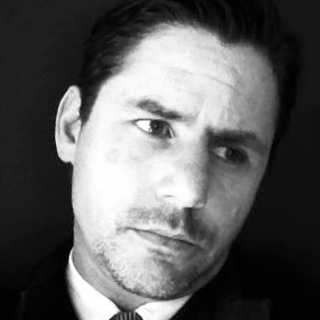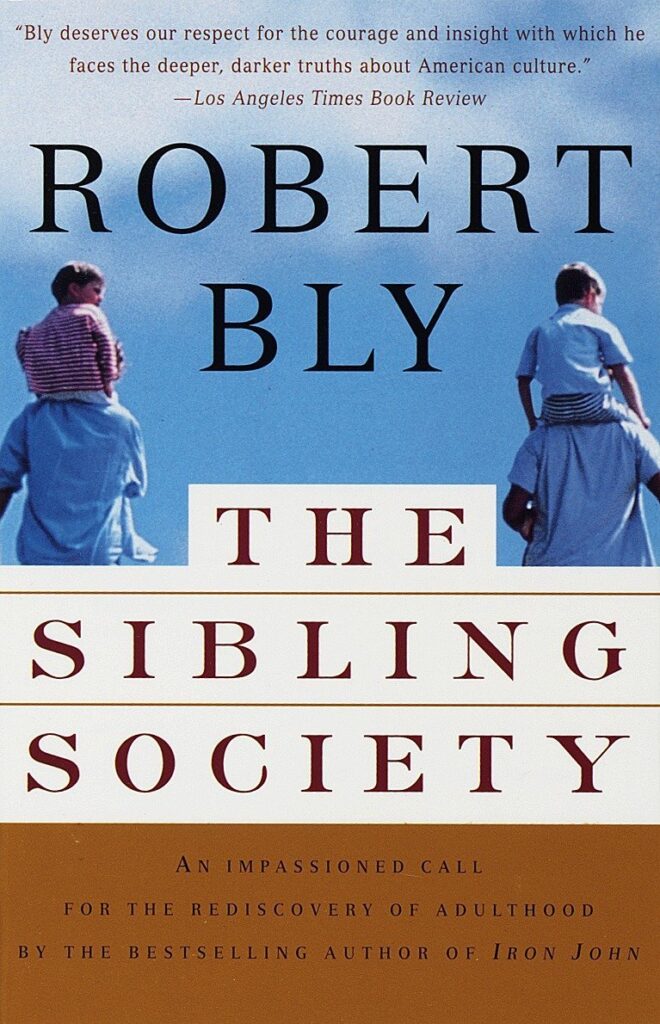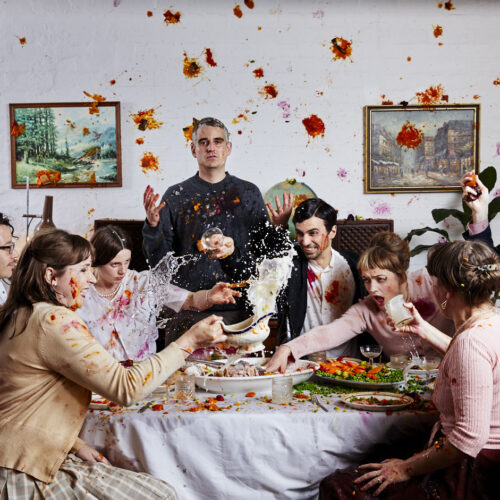
It is always a straw that breaks the camel’s back.
For me, the straw that broke mine was a silly twelve-minute YouTube video called, The Lord of the Rings Superfans Review The Rings of Power Official Teaser Trailer. I happened to be watching a podcast on YouTube and a clip concerning the upcoming Amazon Prime series was suggested as something I might like. I am a closet Lord of the Rings fan so I clicked on it to see what this new series was all about. Jeff Bezos is spending boatloads of cash — nearly a billion dollars to produce it — so my interest in this new series was instantly piqued. A billion dollars is a lot of money so it’s got to be good, right?
I really wish I didn’t watch the trailer review because those short twelve minutes just about ruined my day. Instantly I could tell that this wasn’t a serious review, nor were these supposed “Superfans” actually true J. R. R. Tolkien fans at all. They were nothing but four hipster-looking adolescents (I would never dare call them adults) who were very impressed with themselves and their fresh trendy take on the upcoming series. I have a sneaking suspicion they were nothing but the result of a focus group done by Amazon’s crack marketing research team and I figured these four Superfans are the types of customers he wants to hoodwink into watching the series so he can continue sucking more and more money from America’s entertainment obsessed masses. If you can interest the young, it is easier to take their parent’s wallets.
I call it the circular popularity generator: Convince a group of naive kids that something is cool whether it really is or not, and then they will put undue pressure on their parents to buy it for them. Then when piles of the parents’ money start pouring in, the financial experts (hired by the same company who produced the product) can say that it must be good because it generated tons of revenue. They will then promote it as a bestseller and then other impressionable kids will hear about the popular new series so they will have to watch it and they will, in turn, pressure their parents to buy it for them. And on and on the money train goes. See how the world turns on a child’s smile? See why my back is now broke by another straw of mindless dribble?
It was both painful and infuriating for me to watch this sickening popularity generator play out. Every comment of the four Superfans was couched in communal silliness. It was as if you were listening in on four semi-popular and egocentric high school students sitting in the cafeteria talking about the recent elections for the homecoming court. They were having a light-hearted, culturally-inclusive, giggling good time at my expense.
Childish chatter filled with fluff.
Concerning the narrative of the story, they had nothing to add of weighted insight and offered no intelligent analysis of Lord of the Rings lore. And worst of all, it was quite obvious that they never even read nor showed respect for any of Tolkien’s books, especially The Silmarillion, the main source material that inspired The Rings of Power series. Do you think they had any idea how Tolkien spent a large portion of his life creating a world called the Middle Earth? Oh no, to them everything is about how they feel in the present moment, and if destroying and changing Tolkien’s masterpiece makes them feel more included, they will smash it with reckless childish abandon.
As I watched this atrocious review in hot irritation, I realized that this 12-minute clip is a perfect representation of where our culture currently is at. We are swimming in a society ruled by adolescent tastes and opinions, where a lack of mature thought rules and real understanding of life’s purpose is nowhere to be found or discussed. We are bereft of serious people, and this is not a good thing.
Isaiah talked about the “lack of serious adults as leaders” during one of the worst times in Israel’s history. He writes in 3:1-4:
The Lord, the Lord of Heaven’s Armies,
will take away from Jerusalem and Judah
everything they depend on:
every bit of bread
and every drop of water,
all their heroes and soldiers,
judges and prophets,
fortune-tellers and elders,
army officers and high officials,
advisers, skilled sorcerers, and astrologers.
I will make boys their leaders,
and toddlers their rulers.
People will oppress each other—
man against man,
neighbor against neighbor.
Young people will insult their elders,
and vulgar people will sneer at the honorable.
I want you to notice a few things that Isaiah says:
(1) When boys and toddlers lead, it is a sign of God’s judgment on a society. We have been told to think that youth culture is cool. Isaiah says it is God’s judgment. Remember a few years back when Whitney Houston told us how “Children are our future; let them lead the way.” Well, that time has arrived. Whereas, scripture tells us to teach and train the young by having older men teaching younger men. We are to pass on expertise, it never comes naturally.
(2) When young people rule, they will “insult their elders, and vulgar people will sneer at the honorable.” When a society spoils and God begins to judge, it results in no respect for genuine skill, intelligence, ability, proficiency, and scholarship. You can see this happening everywhere from the 1619 project which trades real historical research for journalistic hubris, to some of our woefully young congresspeople like AOC who get elected to office because they are hip, cool, and spew silly unproven ignorance about the wonders of socialism. We even have young pastors running multi-million dollar churches who got the job as overseer more because they have edgy tattoos and fresh fade haircuts as compared to spending real labor on the proper exegesis of scripture. We live in a non-serious world.
The Sibling Society
Recently I was perusing a book called The Sibling Society by a current poet/philosopher named Robert Bly. He believes that there is some insidious force that is trying to tear apart adult leadership in the home. He writes,
“Those devoted to the bottom line (the destruction of society) have effectively interposed themselves between the father and the family. Part of the effort has been to get at the children more easily. The more the parent’s dignity and strength are damaged, the more open children are to persuasion.”
That is really scary. He continues,
“All of us who have been angry at fathers rejoiced at first when the fathers lost all authority, but the picture becomes more somber when we realize that the forces that destroyed the father will not be satisfied, and are moving toward the mother. Mothers are discounted everywhere. When mothers and fathers are both dismembered, we will have a society of orphans, or, more exactly, a culture of adolescent orphans.”
He then talks about how fathers and mothers had codes of responsibility encouraging restraint and renunciation for their families. But now, he points out, “we say yes to everything which causes flatness to life. We say yes to everything but adult human beings.”
You can see this happening everywhere. A ten-year-old boy wants to be a girl and you must say yes, which in turn destroys the uniqueness he once had. But if his dad says no, society intervenes and demands that we say yes. If a child wants to go to college without paying, we say yes, and we make others who didn’t ask your child to go to college foot the bill. If your daughter wants to wear a bikini to the bar where hordes of drooling drunk men are waiting to pounce, dads are not allowed to tell their daughter no because that might make her feel bad, and you will be accused of blaming the victim. So say yes to whatever the adolescent wants. Don’t encourage restraint, don’t ever expect renunciation, everything must be yes.
And yes to everything makes for a flat world and childish human beings.
Confessing
As I was reading that book, the author asked a very serious question, but he never answered it. And this question may be the most important of our time, “What is an adult?”
It seems to me that no one really cares about this question. We are too busy exalting children and doing everything we can to stay children ourselves. Peter Pan is Everyman. We are forever trying to stay young, not just cosmetically, but socially people love to stay childish. Everywhere you turn — life, conversation, and entertainment is chatter filled with fluff. Serious adults are not welcome. I am sure people reading will even cringe at the word serious. Who likes serious people anyway?
God does.
Let me explain what I mean by serious. The word serious often has people jumping to negative conclusions: a world of stoic indifference. “You mean no more good stories? No more fairy tales to be believed? And I can’t enjoy a good laugh anymore?” That is not what I think is meant by being serious. The Bible’s definition is just the opposite of stoic indifference, it means that I finally begin to think and feel the way God wants me to.
We use a word for this kind of thinking, to “confess.” Confession means to agree with God, specifically about how he feels concerning the brokenness in the world. It is the exact opposite of indifference. Children are by nature indifferent, they need to be taught how to react to certain situations in life. An adult sees clearly. When they do wrong, they are truly sorry, a child could care less.
Take for instance the whole issue of the sanctity of life. Is the baby in the womb a human being or not? Should we take seriously that the life in the mother’s womb is going to grow into a living, breathing human being? A serious person will fight for the baby’s life. They understand reality as it really is and they don’t play games and pretend. It is children who are indifferent.
A serious person loves truly, they cherish friendships and sacrifice for others. Children and adolescents believe they have plenty of time to grow up. Friendships don’t matter much, and they demand to be served. Serious adults take responsibility. Children don’t.
Robert Bly says something else in his book that brings out this need for adult seriousness in our culture. He says we need to start admitting that deconstruction of family and religion “has now come back on us. We now see an entire generation of students living in an impoverished landscape. The elders are without power, and the Christian religion is no longer vigorous…The increasing ignorance about history, geography, philosophical matters, foreign languages, moral issues, Shakespeare, the Bible, Greek literature resembles the impoverished world of colonized people. The students’ diminished interior landscape, upon which only pop culture shacks have been erected…where the once well-built old houses and even gardens and those squares where people talked, now adults live in the ruins.”
We need some adults to start repairing the damage.
They need to rise up. To create beautiful works of art again, cherish the masterpieces from the past, and reflect the mind of God on how seriously he views things. He loves the good, he hates evil, and so should we. We need a new grid on how to view the world, “Finally, brothers and sisters, whatever is true, whatever is noble, whatever is right, whatever is pure, whatever is lovely, whatever is admirable—if anything is excellent or praiseworthy—think about such things.” (Philippians 4:8)
You can’t be serious? Well, I am!

Christopher J. Weeks is an author and has been a bartender, rugby player, salesman in the Chicago loop, teacher in Russia, and now for the last 25 years, he has been pastoring with his wife and four children at a rural church amidst the apple orchards of West Michigan farmland.






